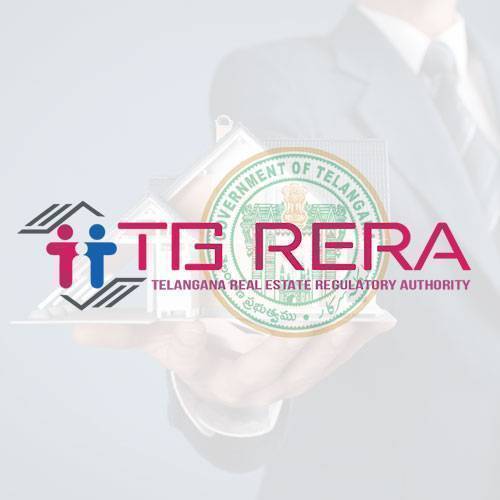The Indian real estate market has shown remarkable resilience in the first quarter of 2025, with a significant uptick in deal activity despite muted capital market activities such as IPOs (Initial Public Offerings) and QIPs (Qualified Institutional Placements). According to a report released by Grant Thornton Bharat, the market witnessed 28 deals valued at $1.2 billion during the January-March period. This represents a staggering 133% growth in deal volumes and more than a five-fold increase in deal values compared to the same period in 2024.
The report, titled "Real Estate/REITs Dealtracker – Providing M&A and PE Deal Insights," reveals that private equity transactions were a key driver of this growth. A total of 17 private equity and venture capital (PE/VC) deals accounted for a substantial $1,050 million of the total deal value. On the other hand, the merger and acquisition (M&A) space recorded 11 deals amounting to $137 million. The surge in private equity activity signals sustained investor interest in the real estate sector, despite the slowdown in IPOs and QIPs.
Private equity has increasingly become a critical source of capital in the real estate sector, with investors continuing to show a keen interest in opportunities, particularly in commercial and residential segments. The positive trend in PE/VC deals highlights the confidence investors have in India’s real estate market. The significant rise in PE deal values is indicative of the growing potential of the sector, even in the face of challenges such as economic uncertainty and regulatory changes.
The report also points out that there was a lack of IPO and QIP activity during the March quarter. However, the emergence of small and medium Real Estate Investment Trusts (SM REITs) has continued to gain momentum. This new category of REITs is opening up new avenues for developers and investors, particularly in commercial and retail real estate assets. The SM REITs segment has seen four registrations and one listing during the first quarter of 2025. These developments are expected to democratize capital market access for a wider pool of developers and investors, offering an alternative source of funding for smaller projects and those that were previously unable to tap into the traditional capital markets.
SM REITs have gained traction in recent years due to their potential to offer better yields and liquidity to investors. They are particularly appealing for small and medium-sized developers who may struggle to raise capital through traditional routes like IPOs or large institutional investors. SM REITs are expected to play a critical role in the commercialization of smaller-scale real estate projects, particularly in cities and regions where commercial and retail properties are seeing increased demand.
Shabala Shinde, Partner & Real Estate Leader at Grant Thornton Bharat, commented on the report, saying that while the first quarter of 2025 began with a strong uptick in overall deal activity, the numbers were still lower compared to the previous quarter. In Q4 2024, there was a surge in capital market-driven transactions, including IPOs and QIPs, which contributed significantly to the market’s performance. However, the absence of these activities in Q1 2025 has not hampered the growth in the real estate sector, as demonstrated by the growth in deal volumes and values.
The rise of SM REITs is a promising development for the real estate market, as it offers greater flexibility and scalability for smaller developers. These REITs enable developers to access funds without the complexity and costs associated with large-scale public offerings. For investors, SM REITs offer a more diversified portfolio and exposure to commercial real estate, which continues to be a high-demand sector in India.
Despite the absence of large IPO and QIP activities, the first quarter of 2025 has demonstrated that the real estate market continues to evolve, with a shift towards more accessible forms of capital raising. As the sector adjusts to new market dynamics, the role of private equity, venture capital, and SM REITs is expected to become even more prominent.
The continued growth in deal volumes, especially in private equity, highlights the attractiveness of the Indian real estate market. Despite challenges such as regulatory hurdles, economic uncertainty, and the occasional downturn in the capital markets, the real estate sector has proven to be a resilient and lucrative space for investment.
The report also sheds light on the broader trends in India’s real estate market, noting that demand for commercial properties continues to remain robust, particularly in major cities like Bengaluru, Mumbai, and Delhi. With increasing demand for office spaces, logistics, and retail properties, developers are focusing on projects that cater to the needs of the modern economy, including smart buildings, sustainable infrastructure, and flexible workspaces.
Furthermore, residential real estate remains a vital segment of the market, with strong demand driven by the growing middle class, urbanization, and increasing disposable income. The shift in preferences towards affordable housing and plotted developments in emerging locations also points to changing trends in consumer behavior. As infrastructure development improves in areas on the periphery of major cities, more homebuyers are considering these emerging locations as viable alternatives to the crowded urban centers.
The Indian real estate market’s performance in the first quarter of 2025 underscores the sector’s ongoing transformation. While traditional capital-raising methods like IPOs and QIPs have been subdued, private equity, venture capital, and SM REITs are proving to be powerful catalysts for growth. The market is adapting to the evolving needs of developers and investors, and as a result, it remains an attractive space for investment. As the year progresses, it will be interesting to see how these new funding models continue to shape the future of Indian real estate, particularly in the areas of commercial and residential development.









.png)